DevOps software
Updated: October 29, 2023
DevOps software is a set of tools and solutions that facilitate the implementation and management of the DevOps philosophy, which aims to foster collaboration and integration between software development and IT operations teams. DevOps software automates various aspects of the software development lifecycle, such as code integration, testing, deployment, and monitoring. These tools enable continuous integration and continuous delivery (CI/CD), allowing developers to release new features and updates rapidly and reliably. With features like version control, automated testing, and infrastructure provisioning, DevOps software streamlines development workflows, enhances collaboration, and improves the overall efficiency of the development process. By breaking down silos between development and operations teams and promoting a culture of collaboration, DevOps software empowers organizations to deliver high-quality software products more efficiently, reduce time-to-market, and respond quickly to customer feedback and changing business requirements.
See also: Top 10 IDE Software
See also: Top 10 IDE Software
2023. System Initiative wants to modernize DevOps with new $18M funding,
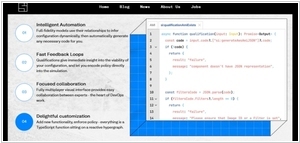
The pioneers of DevOps had a vision to bring exceptional agility, reliability, and security to every player in the industry. However, the current implementations have left numerous organizations trapped in a mediocre state, far from achieving our collective aspirations. Despite the promise of DevOps, the reality often involves the cumbersome task of integrating multiple products. Recently, System Initiative raised $18 million, firmly believing that fulfilling the potential of DevOps requires a complete reimagining of the toolchain itself. At its essence, System Initiative offers a set of tools that enable DevOps teams to create simulations of their infrastructure, enabling swift updates to their production environments. This innovative platform is currently in private beta, and the company plans to open source many of its fundamental tools.
2023. Aembit raises $16.6M to bring identity management to workloads
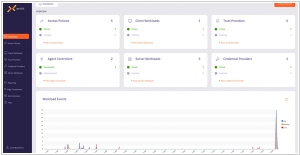
Aembit, a security startup that specializes in aiding DevOps and security teams in regulating the communication between federated workloads, has officially launched its service and disclosed a $16.6 million seed funding round. Aembit's service for workload identity and access management leverages industry expertise to handle user and device access to cloud workloads, including APIs, databases, and other cloud resources, without necessitating developers to modify their code. Aembit's objective differs from that of API gateways and security services, which operate ahead of the API and assist developers in creating and securely exposing them to both internal and external developers. In contrast, Aembit focuses on the client that interacts with the API and guarantees its authorization to access it.
2021. Rezilion raises $30M help security operations teams with tools to automate their work
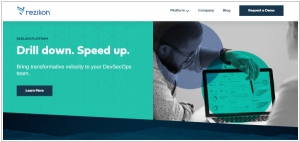
Israeli startup, Rezilion, has secured $30 million in funding for its automation tools catering to DevSecOps. DevSecOps is an IT domain dedicated to addressing the requirements of security teams and their technical responsibilities. Presently, numerous tools exist in the market to automate various aspects of developer and security operations. However, Rezilion specializes in a specific facet of DevSecOps. Large enterprises have established numerous processes over time to ensure comprehensive efforts in identifying and mitigating security threats. Today, these processes may involve scrutinizing each identified vulnerability to assess potential consequences.
2021. Blameless raises $30M to guide companies through their software lifecycle
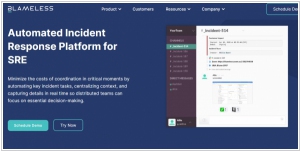
The Blameless platform, a site reliability engineering (SRE) solution, has successfully raised $30 million. SRE is an extension of DevOps tailored for intricate environments. Blameless' platform offers crucial elements such as context, guardrails, and automated workflows, enabling engineering teams to communicate and collaborate seamlessly. By providing these capabilities, Blameless empowers teams to address issues promptly while building robust software systems.
2021. Opsera raises $15M for its continuous DevOps orchestration platform
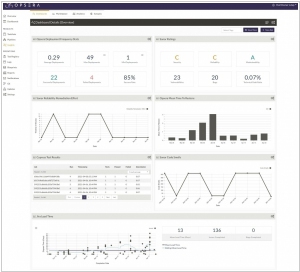
Opsera, a startup focused on developing an orchestration platform for DevOps teams, has recently secured $15 million in a Series A funding round. Opsera offers developers the capability to provision their CI/CD (Continuous Integration/Continuous Delivery) tools using a unified framework. Through this framework, they can construct and manage pipelines for a wide range of applications, including software delivery lifecycle, infrastructure as code, and SaaS application releases. In essence, Opsera's goal is to assist teams in effectively setting up and operating their diverse DevOps tools.
2020. OpsLevel raises $5M to fix DevOps
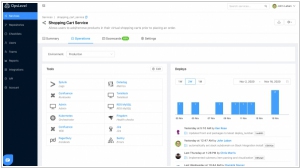
The team behind DevOps startup OpsLevel argues that the term "DevOps" has lost its meaning and developers still lack access to the appropriate tools to effectively implement the concept. To address this, OpsLevel has secured a $5 million seed funding round. At the heart of OpsLevel is a "service ownership platform," which begins with a catalog of the engineering organization's existing services. OpsLevel provides different avenues for teams to start cataloging their services. They can opt for a "config-as-code" approach, using YAML files within their Git workflows. Alternatively, OpsLevel offers APIs that teams can integrate into their existing service-creation workflows if they prefer.
2020. Checkly raises $2.25M for its monitoring and testing platform for DevOps teams
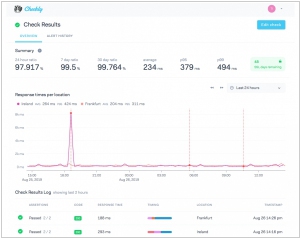
Checkly, a startup based in Berlin, has successfully raised $2.25 million in seed funding. The company is focused on developing a monitoring and testing platform specifically designed for DevOps teams. Checkly's Software-as-a-Service (SaaS) platform empowers developers to monitor their API endpoints and web applications effectively. Notably, it provides timely alerts whenever any issues arise. The transaction monitoring tool simplifies the process of regularly testing interactions with front-end websites, eliminating the need for manual code writing. Leveraging Google's open-source Puppeteer framework, Checkly has built its commercial platform. Additionally, the company has developed Puppeteer Recorder, a low-code tool in the form of a Chrome extension, enabling developers to create end-to-end testing scripts effortlessly.
2020. DevOps startup Datree raises $8M
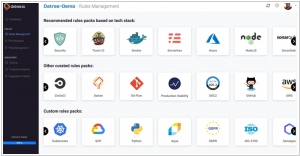
Datree, an early-stage startup focused on developing a DevOps policy engine on GitHub, has recently announced a successful Series A funding round, raising $8 million. The company recognized that while DevOps teams found value in code scanning for identifying issues, they required assistance in defining the rules. In response, Datree has created a set of rules packages that can be executed against code to identify any gaps or issues. These rules packages are developed based on Datree's expertise, contributions from the community, and collaborations with domain experts. For instance, in the case of their Docker security package, Datree partnered with Aqua Security to deliver an effective solution.
2016. Microsoft expands its support for Docker containers
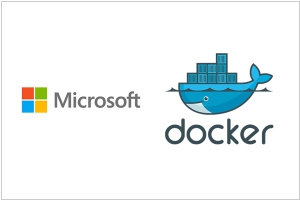
Microsoft has revealed its plans to expand support for Docker containers by integrating them more deeply into several of its enterprise and DevOps tools. Microsoft's keen interest in Docker is well-known, as evidenced by its inclusion of Docker support in the upcoming release of Windows Server and its development of its own Hyper-V container solutions. The company has even demonstrated the ability to run the Linux version of SQL Server in containers on Ubuntu. In line with these efforts, Microsoft has announced that Docker Datacenter, the subscription-based commercial platform offered by Docker, is now accessible through the Azure marketplace. This means that users can easily deploy and run a supported version of Docker on Azure.
2015. Mashape launches API Analytics Platform
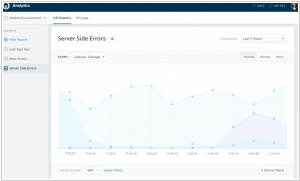
API marketplace Mashape has introduced its analytics service for APIs. Over time, the company has developed its own analytics service to monitor the vast number of APIs it provides, surpassing 13,000. Now, Mashape has decided to separate this service, enabling developers and devops teams to gain a deeper understanding of the performance of their own APIs, even if they are not hosted by Mashape. With Mashape Analytics, developers can identify the most frequently utilized APIs and endpoints, both internally and externally, while also assessing their performance. Essentially, it can be likened to Google Analytics for APIs, as described by Marietti. The service continuously receives real-time API performance data, and in the event of issues, users have the capability to access an instant replay of individual API calls for debugging purposes.
2014. Rackspace guarantees 99.99% uptime of private cloud
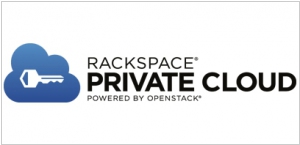
Rackspace is expressing great confidence in the latest release of its private cloud software, built on the OpenStack open-source framework for cloud computing. The company is even offering a guarantee of success for enterprise workload production. Rackspace initially introduced its private cloud in the summer of 2013 and has now enhanced its offering with several notable features. These include a 99.99 percent uptime guarantee for the OpenStack API, increased scalability capable of supporting hundreds of nodes, and DevOps automation services for efficient application lifecycle management. While facing tough competition from industry giants like Amazon Web Services, Google Compute Cloud, and Microsoft Azure, which can provide more competitive pricing, Rackspace aims to leverage the momentum it has built through its private cloud solutions.

